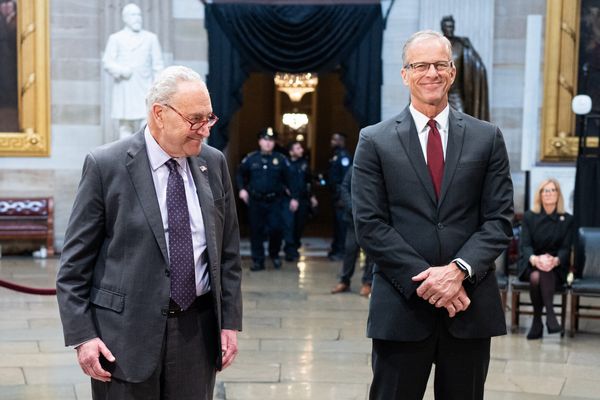Energy Minister Angus Taylor has denied new laws set to take effect in July will further increase petrol prices, despite contrary advice from the petrol price watchdog and his own department.
From July, fuel importers and refiners will be required to maintain a minimum number of days worth of fuel for national security purposes, after a decade of Australia falling short of its international fuel holding obligations.
Proposed regulations will mandate fuel companies hold at least 24 days' worth of gasoline onshore — though the details, including whether fuel on ships can be counted towards that, are still being figured out.
In January, Australia had 30 days' worth of gasoline for cars, according to government data, though the nation has frequently fallen below proposed minimum levels in recent years.
In its latest petrol price report released earlier this week, the Australian Competition and Consumer Commission (ACCC) said the new Minimum Stockholding Obligations (MSO) would increase costs for fuel importers that would likely be passed on at the pump.
"The MSO arrangements will impose additional costs on refiners and importers," the ACCC said.
"These costs may include building additional storage capacity and importing fuels more frequently, and industry participants faced with additional costs are likely to pass them on in the form of higher wholesale and retail fuel prices.
"It is important that the design of the MSO arrangements does not have adverse implications for fuel prices and competition."
The federal government is already under pressure to soften record high petrol prices, which have rocketed past $2 a litre as countries drop their Russian oil imports and the world rebounds from COVID-19 restrictions.
The Energy Minister has denied the coming laws would impose additional costs on fuel importers and refiners.
"We don't think MSO will increase prices at all," Mr Taylor said.
"The net impact of our fuel security measures is to make sure we have the fuel we need when we want it.
"What we're also doing is making sure at times when there would otherwise be shortages of oil there's enough there that can be released onto the market that puts downward pressure on prices and creates competition."
But Mr Taylor's comments on costs are at odds with advice from his own department.
In advice from the Department of Industry that was tabled alongside the Fuel Security Bill when it was introduced to parliament, the department said it expected costs to comply with the new laws would need to either be absorbed or passed on to consumers.
"Compliance costs will be passed on or absorbed to the extent possible in a competitive market, with this to be further assessed during consultation on the Ministerial Rules," the department said in its regulation impact statement.
Additionally, it noted a proposal to establish an intermediary market locally to allow shortfalls or surpluses in stock to be traded "would impose the full costs of the obligation on industry and may have pass through costs to consumers".
The full cost of the new requirements to the government and to industry has not been released.
Stockbroking firm Commsec has already warned petrol prices could hit $2.50 in the back half of this year if the Russian invasion of Ukraine escalates or becomes protracted.
Facing pressure from within its own ranks, the government is considering cutting taxes on petrol to soften prices, even if those gains may quickly be eaten up.
Deputy Prime Minister Barnaby Joyce has poured water on the idea.
"People will come up to me and say, 'Minister, I want you to seal that road,' and I will say we have not got the money. And then they will say, 'I want you to expand the highway,' and we will say we don't have the money," Mr Joyce said.
"And then they will say that's outrageous and we will say, 'Well, the money came from excise.'"
Shadow Treasurer Jim Chalmers said if the federal government is considering intervening on petrol prices, it needs to be transparent about what it expects that to do to petrol prices, and to the government's bottom line.







